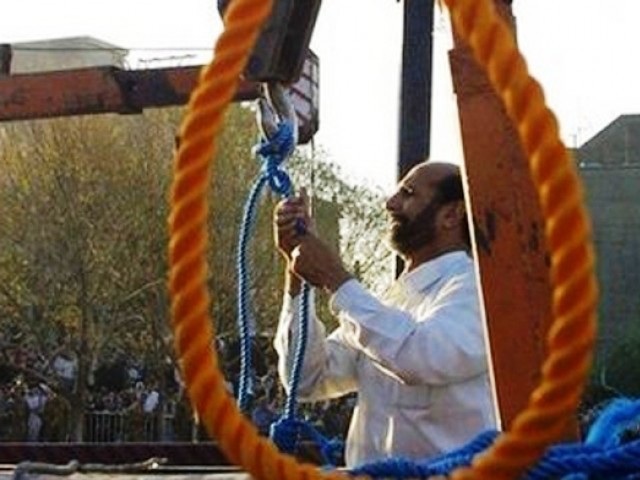EU Demands Pakistan Restore Death Penalty Moratorium
Criticism mounts on Pakistan's decision to reinstate the death penalty

NEW DELHI: The European Union sharply criticised Pakistan’s decision to remove a six year moratorium on capital punishment and demanded its immediate restoration. Pakistani Prime Minister Nawaz Sharif approved the lifting of the moratorium last week, after 148 people, mostly children, were killed in an attack claimed by the Tehreek-i-Taliban Pakistan (TTP) when the militants stormed an army-run school in Peshawar.
Referring to this, in a statement on Wednesday, the EU’s envoy to Pakistan Lars-Gunnar Wigemark, said, "We believe that the death penalty is not an effective tool in the fight against terrorism.” Wigemark, however, added that the EU welcomes Pakistan’s resolve to deal with terrorism and militancy, but opposes the death penalty under all circumstances.
On Sunday, following the reinstatement of the death penalty, Pakistan executed four death-row prisoners who were convicted for their involvement in an attack on former military ruler Pervez Musharraf. Two former military men were also executed in the Faisalabad district jail: Usman, a former soldier of the army’s medical corps was executed for involvement in an attack on the army headquarters in Rawalpindi in 2009, and Arshad Mehmood, a trooper who was convicted on the charges of an assassination attempt on Musharraf in late 2003.
Hundreds more could face execution in the coming weeks. "Interior ministry has finalised the cases of 500 convicts who have exhausted all the appeals, their mercy petitions have been turned down by the president and their executions will take place in coming weeks," a senior government official reportedly told AFP on the condition of anonymity.
This decision to lift the moratorium has previously been criticised by several countries and international watchdogs, in addition to the EU. Human Rights Watch called the decision "a craven politicised reaction to the Peshawar killings.” Amnesty International called the move “deeply disturbing” and said that it would do nothing to protect civilians from the Taliban.
The United Nations voiced “deep regret” on the resumption of executions. “This is particularly disappointing given that just last week, a record 117 States voted in the UN General Assembly in favour of an international moratorium on the use of the death penalty,” UN High Commissioner for Human Rights, Zeid Ra’ad Al Hussein said. “The crime rate, historically, is not lowered by the imposition of capital punishment,” the High Commissioner continued. “Instead, shocking cases emerge, with tragic frequency, of the execution of people who are subsequently proven innocent – including in well-functioning legal systems.”
One such case in Pakistan is that of Shafqat Hussain, who was sentenced to death at the age of 14 and could soon face execution. Hussain is accused of kidnapping and killing a 7-year old in 2004, whilst working as a guard in an apartment building in Karachi. Hussain says he confessed only after being tortured by police during nine days of interrogation, according to the Justice Project Pakistan. Hussain was charged with terrorism as under Pakistani law, any crime that creates “a sense of fear or insecurity in society” can be classified as a terrorist offense.
Echoing this concern of forced confessions under the anti terrorism laws, human rights organisation Reprieve has warned that innocent people could be executed as a result of the government’s decision to lift its moratorium.
The United States, however, has decided not to comment.
Meanwhile, PM Sharif reiterated the government’s resolve to fight terrorism in the country. "The government will not differentiate between terrorists and their facilitators. They both will be taken out," PM Sharif said.



